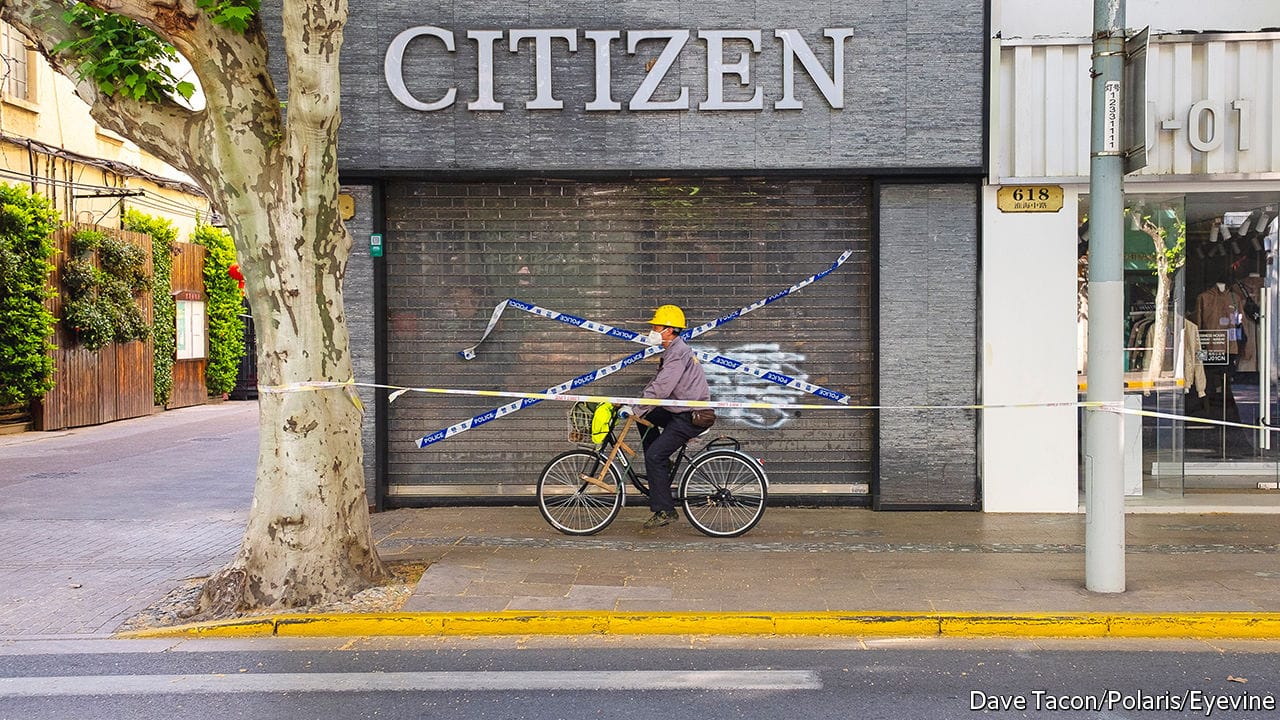Even China’s official economic figures look bleak
The most spectacular declines are in the all-important property sector

When china was locked down during the first wave of the pandemic in early 2020, economic forecasters had to make two predictions: how much would the economy suffer? And how much of this suffering would the official statistics be allowed to reflect? When China reported a historic 13.5% decline in industrial production in January and February 2020, compared with a year earlier, it surprised many forecasters not because it diverged from their bleak view of the economy, but because it challenged their cynical view of the statisticians.
Now that China is squirming under its most stringent lockdowns since early 2020, the same conundrum has returned. How bad will the economy get? And how faithful will the data be? An early answer to both questions arrived this week. The data were worse than expected, and therefore worthier than feared.
This article appeared in the Finance & economics section of the print edition under the headline “When bad data are good”
Finance & economics May 21st 2022
- Global growth is slowing, but not stopping—yet
- Even China’s official economic figures look bleak
- A baby-formula shortage feeds criticism of corporate heft and price gouging
- Why crypto’s bruising comedown matters
- Offset markets struggle in the face of surging commodity prices
- Is China “uninvestible”?
- India’s once-vaunted statistical infrastructure is crumbling
- How to unleash more investment in intangible assets
More from Finance & economics

Why Chinese banks are now vanishing
The state is struggling to deal with troubled institutions

How Starbucks caffeinates local economies
Call it the frappuccino effect

How much cash should be removed from the financial system?
Undoing quantitative easing provokes fierce debate

